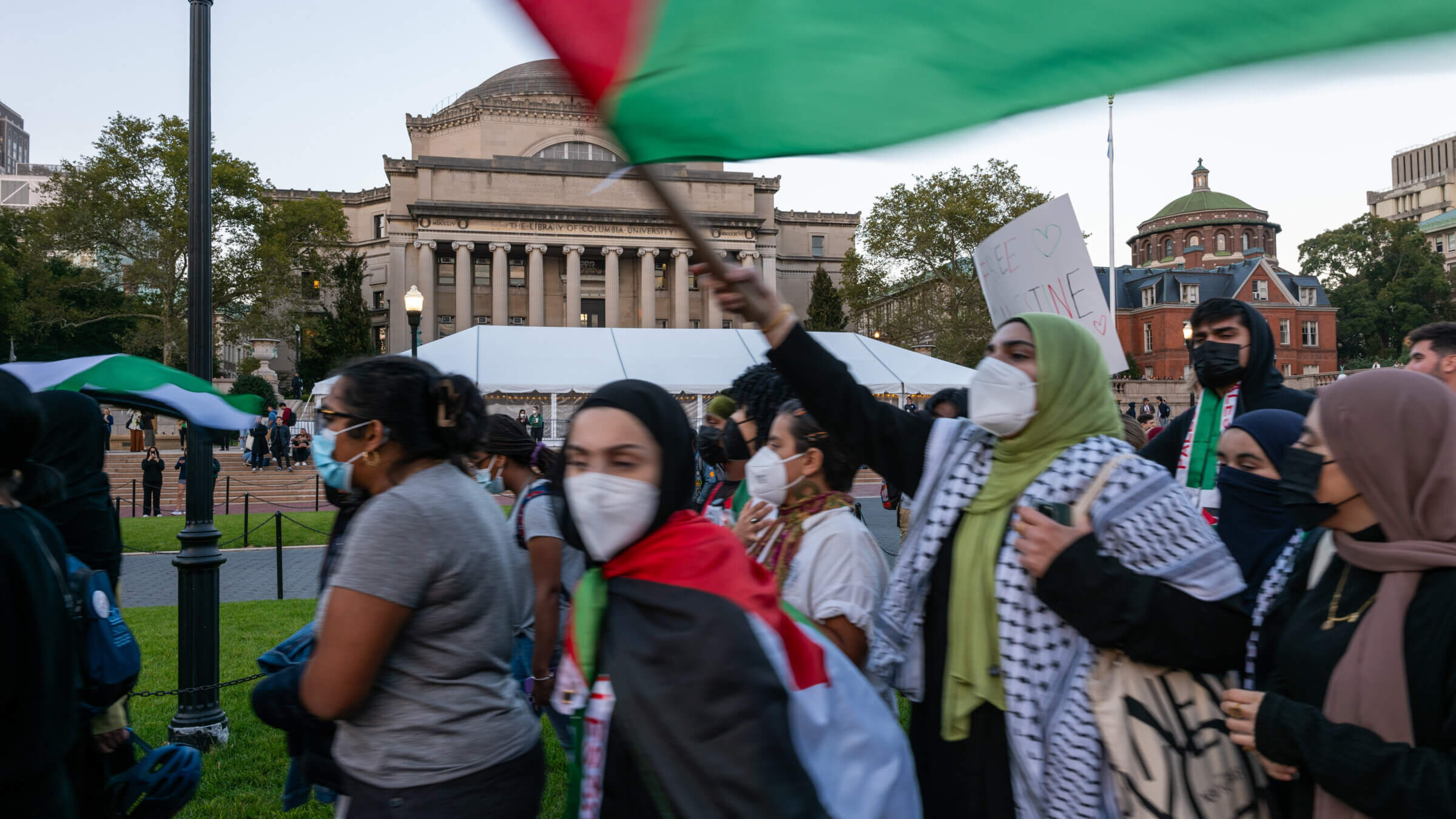Columbia suspends Students for Justice in Palestine and Jewish anti-Zionist group citing ‘threatening rhetoric’
A university official accused SJP and another club, Jewish Voice for Peace, of violating school policies

Columbia students participate in a rally at the university on October 12. The university banned two pro-Palestinian student clubs Friday, citing policy violations. Photo by Getty Images
Columbia University on Friday suspended Students for Justice in Palestine and Jewish Voice for Peace, two anti-Zionist student clubs. The move follows similar action against the Students for Justice in Palestine chapter at Brandeis University earlier this week.
“The two groups repeatedly violated University policies related to holding campus events, culminating in an unauthorized event Thursday afternoon that proceeded despite warnings and included threatening rhetoric and intimidation,” Gerald Rosberg, chair of Columbia’s campus safety committee, said in a statement.
Rosberg was referencing a protest on Thursday in which hundreds of students walked out of class and gathered on campus as part of a nationwide campaign called “Shut It Down for Palestine,” according to the Columbia Spectator, the student newspaper.
The Spectator reported that the school’s policy generally requires clubs to obtain protest permits at least 10 days in advance.
A placard at the Thursday event included a demand that read “no more dual degree,” referring to Columbia’s relationship with Tel Aviv University.
Rosberg threatened pro-Palestinian activists with formal punishment on Wednesday, when a group staged a nine-hour sit-in at the Columbia School of Social Work that was promoted by SJP. According to the Spectator, Rosberg communicated through representatives that the activists were in violation of school rules and faced academic sanctions for “interfering with the traffic of people who are trying to come in and get an education here and pursue their goals here in the School of Social Work.”
He added, “I want to say to you as clearly as I possibly can that what you are doing, all of you, just by being here, is a serious violation of our rules.”
Friday’s action means that the clubs will lose any university funding and will not be eligible to hold on-campus events for the remainder of the semester.
Sonya Meyerson-Knox, a spokesperson for the national Jewish Voice for Peace organization, called Columbia’s decision “a horrific act of censorship and also intimidation.”
“These are students doing exactly what we want to see students all over doing, which is standing up for what they believe in,” she said. “They’re calling for a cease-fire to save lives.”
Other action against SJP
Brandeis University revoked recognition of its SJP chapter Monday, claiming that it supported Hamas, the group behind the Oct. 7 terrorist attack on Israel.
“Students who choose to engage in conduct in support of Hamas, or engage in conduct that harasses or threatens violence, whether individually or through organized activity, will be considered to be in violation of the University’s student code of conduct,” Brandeis wrote in a letter to the group.
Florida’s Republican governor Ron DeSantis has also sought to ban two SJP chapters at public universities in the state, claiming they supported “jihad,” though the state university system has not done so.
While there are Students for Justice in Palestine located on campuses across the country, they operate largely autonomously from the volunteer-run National Students for Justice in Palestine.
Fordham University banned Students for Justice in Palestine from its campus in 2015, a decision that survived legal challenges.
JTA contributed to this report
Update 11/12/23: This article has been updated to reflect that the protesters’ demand to end Columbia’s dual degree program was referring to the school’s relationship with Tel Aviv University, not with the Jewish Theological Seminary, which JTA originally reported appeared to be subject of the demand.













